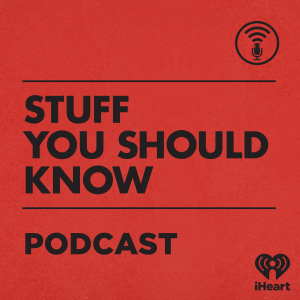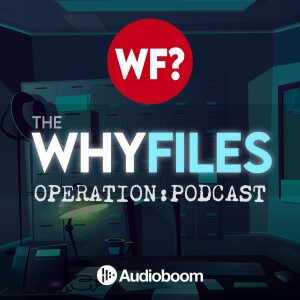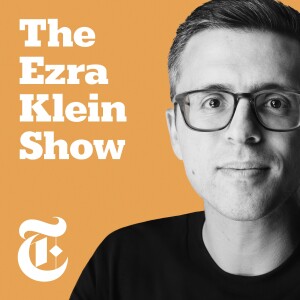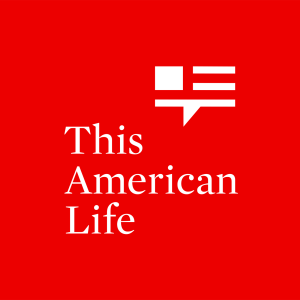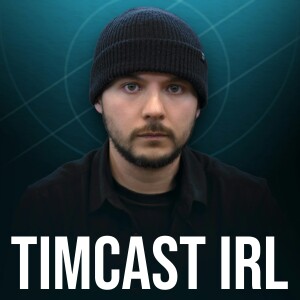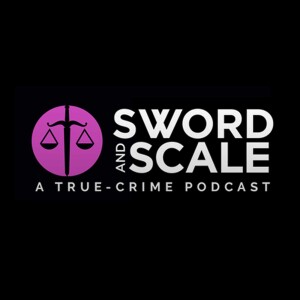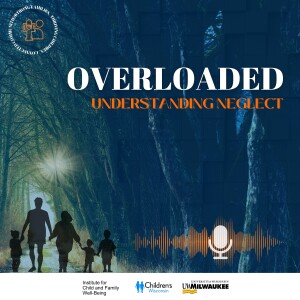

Overloaded: Understanding Neglect
https://feeds.simplecast.com/7HkvK0QAEpisode List

Overloaded: Understanding Neglect - Trailer
Announcing Overloaded: Understanding Neglect, a new podcast series from the Institute for Child and Family Well-being. Neglect is a complex and wicked problem, but it’s one that we believe is preventable if we work together to reimagine how we support families overloaded by stress. Neglect is a public health crisis, as it’s the most common reason that children are separated from their families by the government. 1 in 3 of all US children experience a Child Protective Services investigation, 1 in 10 have a confirmed allegation of maltreatment, and children of color are disproportionately represented in foster care. Nearly 7 in 10 children in foster care are separated from their families due to neglect. The Overloaded: Understanding Neglect podcast represents the important first step of building a shared understanding of the problem and will serve as a foundation for future innovations in practice, policy, and systems change. Join host Luke Waldo, Director of Program Design and Community Engagement at the Institute for Child and Family Well-being, as he explores these issues with research and policy experts Tim Grove (Wellpoint Care Network), Jennifer Jones (Prevent Child Abuse America), Bryan Samuels (Chapin Hall), and Dr. Kristi Slack (University of Wisconsin), Lived Experience expert Bregetta Wilson (Wisconsin Department of Children and Families) and five of his colleagues from Children’s Wisconsin’s child welfare and child maltreatment prevention programs. Through these conversations, we developed a compelling narrative that seeks to build a shared understanding of the realities of overloaded families, so that we might find solutions that reduce family separations for reasons of neglect. Join the conversation on Wednesday, September 21st when we premiere the first episode of Overloaded: Understanding Neglect wherever you listen to your podcasts. Then tune in each week on Wednesday to listen to the rest of the series.

Understanding Neglect
Today’s episode included the following speakers (in the order they appear):Host: Luke WaldoExperts:Jennifer Jones – Chief Strategy Officer, Prevent Child Abuse AmericaBryan Samuels – Executive Director, Chapin HallDr. Kristi Slack – Professor, University of Wisconsin; Founder, Prof2Prof; Affiliate, Institute for Research on PovertyHannah Kirk – Healthy Start Supervisor, Children’s WisconsinTheresa Swiechowski – Family Support Supervisor, Children’s WisconsinAshlee Jackson – Family Support Specialist II, Children’s WisconsinBregetta Wilson – Lived Experience Coordinator, Wisconsin’s Department of Children and FamiliesTim Grove – Senior Consultant – Wellpoint Care NetworkDr. Julie Woodbury – Family Preservation and Support Manager, Children’s Wisconsin:31 – Luke Waldo – Introduction to Overloaded: Understanding Neglect podcast and Strong Families, Thriving Children, Connected Communities initiative. Strong Families, Thriving Children, Connected Communities3:33 – Luke Waldo – Child neglect and abuse statistics. How is child neglect defined?Wisconsin Out-of-Home Care Report (2020)4:56 – Jennifer Jones – Definitions of neglect differ across the country. Wisconsin’s definition of neglect, which specifically includes “for reasons other than poverty”.Wisconsin Department of Children and FamiliesWisconsin’s Definition of NeglectChild Abuse Prevention and Treatment Act (CAPTA)7:51 – Bryan Samuels – Child neglect national and state statistics. Why neglect is the primary reason for family separation in child welfare systems.10:43 – Dr. Kristi Slack – Child neglect and poverty. Systems’ failures that lead to overloaded families.12:51 – Luke Waldo – Introduction of Lived Experience and Direct Practice experts.13:12 – Hannah Kirk – Defining child neglect.13:40 – Theresa Swiechowski – Defining child neglect.13:55 – Ashlee Jackson – Poverty and neglect. 14:22 – Bregetta Wilson - Defining child neglect.14:31 – Hannah Kirk – Mental health and substance use challenges.15:44 – Theresa Swiechowski – The gray areas of neglect.17:54 – Luke Waldo – Complexity of neglect. Introduction of stories about individuals and families that experienced neglect.18:48 – Bregetta Wilson – Social determinants of health. Story about an 18 year old young man who had been involved with the child welfare system for much of his childhood. Story about a mother who went to the system to ask for help, but then had her children taken from her.Social Determinants of Health24:00 – Tim Grove – Story about a 3 month old child that experienced neglect. Trauma as an underlying root cause. Trauma statistics in the child welfare system.30:23 – Luke Waldo – How families become overloaded by stress.30:54 – Dr. Julie Woodbury – Mental health and stress piling on overloaded families.32:18 – Bryan Samuels – The intersection of poverty and neglect. 32:54 – Luke Waldo – 3 Key Takeaways. 35:21 - Closing Credits and Gratitude.Join the conversation and connect with us!Visit our podcast page on our ICFW website to learn more about the experts you hear in this series.Subscribe, rate our show and leave feedback in the comments section.Sign up for our Strong Families, Thriving Children, Connected Communities initiative and our quarterly newsletter.Follow the Institute for Child and Family Well-being on Facebook, Instagram and LinkedIn.

Understanding Neglect: Trauma and Systemic Oppression
Today’s episode included the following speakers (in the order they appear):Opening quote: Tim Grove – Senior Consultant – Wellpoint Care NetworkHost: Luke WaldoExperts:Jennifer Jones – Chief Strategy Officer, Prevent Child Abuse AmericaBregetta Wilson – Lived Experience Coordinator, Wisconsin’s Department of Children and FamiliesTim Grove – Senior Consultant – Wellpoint Care NetworkBryan Samuels – Director, Chapin Hall0:04 – Tim Grove – Opening Quote on Trauma and Equity:52 – Luke Waldo – Introduction to root causes of neglect – trauma and systemic oppression.3:23 – Luke Waldo and Jennifer Jones – Adverse Childhood Experiences (ACEs) and Adverse Community Environments. Wendy Ellis.Pair of ACEs - Adverse Community Experiences 5:41 - Bregetta Wilson – Dorothy Roberts’ Torn Apart reading and the structures of bias built into child welfare systems. Torn Apart: How the child welfare system destroys Black families–and how abolition can build a safer world by Dorothy Roberts8:25 – Luke Waldo – Importance of facing the realities of inequities and generational trauma in our society.9:05 - Tim Grove – Impacts of ACEs, trauma, and equity. Original ACEs study Dr. Joy DeGruyDr. Maria Yellow Horse Brave HeartSam SimmonsFran Kaplan & Reggie JacksonCenter for Community Resilience13:01 – Bregetta Wilson – How are we educating the system actors like mandated reporters? Generational trauma from generational child welfare involvement. Bias.15:46 – Luke Waldo – Prevalence of ACEs. ICFW ACEs studies. Disproportionality statistics.ICFW Adverse Childhood Experiences’ studiesWisconsin Out-of-Home Care Report (2020)Wisconsin child population demographics: US Census Quick Facts (2020 Estimates)17:48 – Luke Waldo and Jennifer Jones – Systemic oppression and disparities. Addressing the Root Causes of Neglect ArticleChange in Mind Institute21:39 – Bryan Samuels – Child welfare disparities. Hispanic and African-American families in child welfare system.Illinois Department of Children and Family Services StatisticsNational Child Maltreatment Data from the Administration for Children and Families24:39 – Gabe McGaughey – How might data better inform us?25:29 – Bryan Samuels – How data might more effectively inform the child welfare and child maltreatment prevention systems.27:56 – Luke Waldo – What would families change about the child welfare system?28:24 – Bregetta Wilson – Let families lead. 29:19 – Luke Waldo – Closing introduction to speakers.29:45 – Jennifer Jones - The legacy of systemic racial trauma. Positive Childhood Experiences.Examining the Association between ACEs, Childhood Poverty and neglect, and physical and mental health: Data from two state samples Positive Childhood Experiences and Adult Mental and Relational Health in a Statewide Sample: Associations Across Adverse Childhood Experiences Levels34:44 – Bryan Samuels – The real challenges of the child welfare system. 39:36 – Luke Waldo – 3 Key Takeaways41:58 – Closing Credits and GratitudeJoin the conversation and connect with us!Visit our podcast page on our ICFW website to learn more about the experts you hear in this series.Subscribe, rate our show and leave feedback in the comments section.Check out our upcoming events.Sign up for our Strong Families, Thriving Children, Connected Communities initiative and our quarterly newsletter.Follow the Institute for Child and Family Well-being on Facebook, Instagram and LinkedIn.

Understanding Neglect: Poverty
Today’s episode included the following speakers (in the order they appear):Opening quote: Jennifer Jones – Chief Strategy Officer, Prevent Child Abuse AmericaHost: Luke WaldoExperts:Dr. Kristi Slack – Professor, University of Wisconsin; Founder, Prof2Prof; Affiliate, Institute for Research on PovertyBryan Samuels – Director, Chapin HallJennifer Jones – Chief Strategy Officer, Prevent Child Abuse AmericaBregetta Wilson – Lived Experience Coordinator, Wisconsin’s Department of Children and FamiliesTim Grove – Senior Consultant – Wellpoint Care Network0:03 – Jennifer Jones – Opening statement on systemic challenges and poverty.00:59 – Luke Waldo – Introduction to another root cause of neglect - poverty.Dr. Jerry Milner and David Kelly article: It’s Time to Stop Confusing Poverty with Neglect.4:47 – Kristi Slack – Child welfare statistics and disparities. Impact of poverty and housing instability on families and child welfare involvement. Economic safety net’s impact on child maltreatment prevention. Institute for Research on Poverty article: Preventing Child Maltreatment and Neglect in the United States: Opportunities for Change9:07 – Gabe McGaughey and Kristi Slack – Poverty is a constellation of issues. Poverty compounding other risk factors. 13:07 – Luke Waldo – Family vulnerability as a consequence of systems’ failures.14:15 – Bryan Samuels – Economic loss, unemployment, and housing instability as the most likely predictors of child welfare involvement. Financial benefits, childcare, housing stability, and employment as a social safety net. 16:12 – Jennifer Jones – Child well-being system to support overloaded families. Economic and concrete supports reduce risk of child welfare involvement.Prevent Child Abuse America article: Addressing the Root Causes of Child Neglect21:01 – Kristi Slack – Complex, multi-faceted nature of neglect. Class-action lawsuit that led to the Norman Fund for overloaded families living in poverty.Norman Fund23:32 – Kristi Slack – Challenges that arise when families are experiencing housing instability. 25:26 – Luke Waldo – Complicated relationship between poverty and child neglect. Introduction to social capital.26:53 – Bregetta Wilson – Self-efficacy. The stress and impacts of poverty.30:33 – Gabe McGaughey and Tim Grove – The impact of trauma and social capital on economic mobility.Raj Chetty Atlantic articleScaling Wellness in Milwaukee (SWIM)34:02 – Bregetta Wilson – The impact of planting seeds on self-efficacy.35:37 – Luke Waldo – 3 Key Takeaways38:07 – Closing credits and GratitudeJoin the conversation and connect with us!Visit our podcast page on our ICFW website to learn more about the experts you hear in this series.Subscribe, rate our show and leave feedback in the comments section.Check out our upcoming events.Sign up for our Strong Families, Thriving Children, Connected Communities initiative and our quarterly newsletter.Follow the Institute for Child and Family Well-being on Facebook, Instagram and LinkedIn.

Overloaded Families
Today’s episode included the following speakers (in the order they appear):Opening quote: Ashlee Jackson – Family Support Specialist II, Children’s WisconsinHost: Luke WaldoExperts:Bregetta Wilson – Lived Experience Coordinator, Wisconsin’s Department of Children and FamiliesSoua Thao – Home Visitor – Children’s WisconsinHannah Kirk – Healthy Support Supervisor – Children’s WisconsinTheresa Swiechowski – Family Support Supervisor – Children’s Wisconsin0:00 – Ashlee Jackson – “Just because one rose grew through the crack in the concrete is great, but if we took off that block of concrete, how many would grow?”00:11 – Luke Waldo – Introduction to how root causes of neglect – trauma and systemic oppression – overload families.2:58 – Bregetta Wilson – Shares her lived experience with the child welfare system when she was a child, her mother’s struggles, and her sister’s support and influence.5:15 – Luke Waldo and Soua Thao – The challenges that Hmong families experience with language barriers.6:17 – Hannah Kirk – Culture differences and the need for cultural competence in the child welfare system. 8:14 – Hannah Kirk – The mistrust that often exists between the families and professionals that work together in the child welfare system.9:43 – Ashlee Jackson – Mistrust with the systems that should be there to support families – schools, healthcare, etc. – as there is fear that they will be reported to child welfare. 11:34 – Luke Waldo – While overloaded families face many challenges, they also aspire to overcome them.12:35 – Theresa Swiechowski – Families struggle with mental health and substance abuse, and have limited resources to support them. These challenges lead to financial and housing instability.16:11 – Soua Thao – Housing and financial instability. Lack of resources to support families with childcare, mental health, and housing. Soua tells a story about a family that was recently evicted.19:30 – Luke Waldo – How do we start to recognize that we too often punish children for their parents’ past?20:16 – Hannah Kirk – The impacts of segregation and bias. 20:42 – Luke Waldo – How these many challenges pile on and overload families.21:36 – Luke Waldo – How might we change our systems and empower families, so that they may overcome these complex challenges?22:17 – Bregetta Wilson – Shares more of her story when she was a child in the child welfare system, and when she asked her case worker, “Can you help my mom?”24:40 – Hannah Kirk – Talks about how families are strong and the importance of seeing families through their strengths. “What has happened?” versus “What did you do?”27:14 – Ashlee Jackson – Shares her lived experience with the child welfare system and the need to advocate for herself.28:29 – Theresa Swiechowski – Talks about her a-ha moment early in her career when she first understood that an overloaded mother was doing the best she could for her daughter by sending her to camp all day.31:04 – Luke Waldo – If we walk in the door asking what families need rather than what families did, it would change our approach of how we work with families.31:30 – Soua Thao – Discusses the importance of cultural traditions and family support. Hmong American Center34:05 – Hannah Kirk – Making a point to talk about families’ strengths. 36:48 – Ashlee Jackson – The power of resilience, resourcefulness and building a network.37:54 – Theresa Swiechowski – Resilience is a superpower. The strengths and challenges of family involvement. 39:41 – Soua Thao – Parents’ enthusiasm for learning how to become better parents.40:47 – Theresa Swiechowski – “Strong, funny, optimistic people doing their best.” 42:40 – Ashlee Jackson – “They love their kids.” 43:14 – Soua Thao – Parents want the best for their kids.43:53 – Luke Waldo – Gratitude and 3 Key Takeaways47:30 – Closing CreditsJoin the conversation and connect with us!Visit our podcast page on our ICFW website to learn more about the experts you hear in this series.Subscribe, rate our show and leave feedback in the comments section.Check out our upcoming events.Sign up for our Strong Families, Thriving Children, Connected Communities initiative and our quarterly newsletter.Follow the Institute for Child and Family Well-being on Facebook, Instagram and LinkedIn.
Create Your Podcast In Minutes
- Full-featured podcast site
- Unlimited storage and bandwidth
- Comprehensive podcast stats
- Distribute to Apple Podcasts, Spotify, and more
- Make money with your podcast



